Neuro-cognitive science researchers at IIITH to conduct a first-of-its-kind workshop on ‘Teaching The Learning Brain’ – targeted at teachers interacting with students from grade 1 to grade 8. Here’s what it’s about.
They say it takes a genius to know one. Little wonder then that it was Albert Einstein who famously wrote,”Everybody is a genius. But if you judge a fish by it’s ability to climb a tree, it will live its whole life believing that it is stupid”. And echoing this very thought is the sentiment driving the unique workshop for primary and middle-school teachers.
In a bid to demystify the process of learning that takes place through the developmental years, IIITH is curating a series of interactive lectures and discussions with the help of eminent experts in the field. “We want to introduce teachers to the concept of neuro-development and what children are capable of learning at various stages of development. The basic premise of the workshop is that learning happens differently for different children. Bringing about such an awareness is perhaps the first step towards the larger goal of imparting education,” says Kavita Vemuri, faculty at the Cognitive Sciences Research Centre and one of the lead organizers of the workshop.
The 2-day workshop which is on 13 and 14 December 2019 also aims to bring research findings in the spheres of language development, Mathematical abstraction, role of socio-economic factors, physical activity, mental wellbeing and so on, to the aid of classroom teaching.
Language Development: Ever wondered why it gets tougher to learn new languages as we grow older? We know that babies pick up sounds (they can identify the mother’s voice immediately after birth) and by extension even languages even while in the womb. In fact according to ancient Hindu mythology, Abhimanyu (Arjuna’s son) learned the art of breaking into the Chakravyuha when he was in his mother’s (Subhadra) womb, when Arjuna was narrating the art to Subhadra. More recently, researchers have shown code switching to be part of a bilingual child’s normal language development. Infants respond to any language(s) that they’re exposed to. But by their first birthdays, monolingual babies begin to lose their ability to differentiate between other foreign sounds and become specialized in the sounds of their own native language.
Learning Math: There’s a huge transition that takes place in Mathematical development of the brain when we move from say, simple Arithmetic involving numbers to a more abstract Algebra.
When abstract unknowns like x, a, or b come into the picture, learning is much more complex. A session on this will shed light on the transition that takes place at this stage in the brain and the subsequent learning that takes place.”There are some students who are not able to handle the transition well. If teachers understand what happens during this stage, they will be able to better assist the students by putting in more effort,” explains Kavita. A similar abstraction takes place in the development of logic and reasoning which explains why there are different kinds of puzzles and teasers for different age groups.
Differential Abilities: As mentioned at the very outset, the workshop plans to focus on helping teachers identify varying abilities of children. Of particular interest to Kavita is the process of identifying the ‘outliers’ as she calls them, especially the gifted. “There are fairly good number of systems or methods that identify if there’s a problem with the child’s learning, thanks to the researchers who have worked in this area, but somehow in our education system we’ve not been able to identify children who are very good,” she says. Studies have shown that intellectually stimulated children show a natural proclivity towards Math, Music and Fine Arts in particular. While in the Western countries, gifted children are subtly led towards advanced courses without making them feel socially superior, it is not the same in India. A method of challenging and engaging with such minds is also equally required. There may even be those who do not score academically high grades but are bright sparks. “In every school or class, we find such cases. We’re losing some of these kids. Because once they get to high school, the regular grind starts,” remarks Kavita wryly.
Physical Activity and Cognition: In recent years with the physical size of playgrounds being cut down to pave way for more computer labs and others, this session that seeks to show the connection between exercise and the brain assumes huge significance. An expert in the field, a trained doctor will demonstrate how fitness is just as important if not more than the hours spent in front of a TV or screen or book.
Mental Health and Learning: A panel discussion with well known psychiatrists and counsellors seeks to deliberate upon factors that cause anxiety and stress to not just students but also teachers. Why? Work stress affects teachers too. A recent Australian study revealed that teachers are more depressed and anxious than the average Australian. The reasons cited ranged from lack of educational resources and workload to behavioural challenges with students. Strategies on how to cope with these factors in educators will be discussed. And in the case of children, it will range from learning to identify signs and symptoms of a child experiencing stress (when the trigger may or may not be the school environment) to learning how to deal with it.
Nutrition and Cognitive Abilities: Initially started as a way to lure more children’s enrollment into govt primary schools, the mid-day meal scheme has now evolved into a structured nutritional school programme by providing free school lunches on working days to primary school children. At a recent business conclave in Mumbai, Bill Gates,co-founder of Microsoft and founder of the Bill and Melinda Gates Foundation said, “Malnutrition reduces the potential of kids dramatically, their ability to provide and learn are reduced. It’s like 15 IQ points go away.’ All learning strategies, challenging materials and methods of engagement come to nought if a child is unable to concentrate due to lack of a nutritious meal. The idea is to bring awareness about the link between nutrition (or the lack of it) and cognitive abilities to the educators.
Empathy: Teaching a teacher to be empathetic forms part of an interactive session where ways to connect with the children will be discussed. Only a non-judgemental educator who puts things in the right perspective can understand and address student behaviour. Research findings in empathy-attributed brain networks at IIITH will add to this interactive session.
Music and Creativity: Cognitive Science researchers at IIITH have been engaged with exploring music and its effects on the brain. They have discovered that it is now possible to identify various mental states of an individual based on their musical choices. This aspect of their research on the developing brain will be discussed. Also under the spotlight will be the emergence of creativity, not necessarily only as an artistic enterprise but more as an out-of-the-box thinking paradigm.
Competition and Pushing The Boundaries: The workshop will conclude with a fitting interactive session involving two current IIITH students, moderated by Prof. Sangal, former Director of IIITH. The students will ruminate on what it meant, to have an element of competition while growing up, i.e, in the school years. The open discussion will allow for free flow of perspectives on whether competition kills or spawns learning. “The question we’d like to ask is if students can push themselves independent of a competitive scenario? I think it can be done…and if it is, then it will change the entire narrative of the education system at this lower level (Grade 1-8). If we fix that, the rest will be fixed,” says Kavita.
Training For All
The workshop makes no distinction between educators of mainstream schools and alternate ones. In fact, the idea is to engage qualitatively across teachers coming from not just private schools but govt-run schools too. Arrangements are being made to have native-Telugu researchers translate the proceedings of the workshop in real-time so as to involve more Telugu-speaking teachers in the discussions. All relevant material such as those required for administering of tests for children will be shared at the end of the workshop. The organizers discovered that focus on the neuro-cognitive aspects of learning is often missed out even in BEd curriculum. Hence a special target audience will also be ‘teachers in the making’ – BEd students.
Speaking about why an institute of higher education is engaging in the education process at the primary level, Kavita says that first, as cognitive scientists, a lot of their research deals with the way the brain develops in the learning process. “As an institute, and I think all institutes should invest in children, because they are our future students. We should start early…first start with engaging with teachers. I would want the best ones, the curious ones to come here. And also, after our interaction, we want to identify certain problem statements that we can continue as research here,” she says paper writing help.
For more details on the Teacher Training Workshop on 13 – 14 December or to register please visit http://ttb.iiit.ac.in
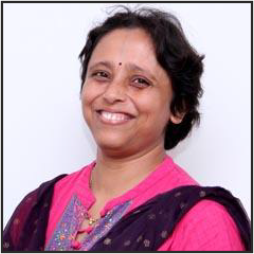
M.Sc. (Mathematics), M.Ed (Delhi University)., Ph.D (Mathematics Education, TIFR Mumbai)
Teaching and learning of mathematics at elementary level – understanding and meaning making processes involved in learning concepts and symbols and language of mathematics. Classroom processes – culture, environment and tasks affecting teaching-learning practices, especially in a mathematics classroom. Nature and role of teacher’s knowledge, values and beliefs in practice
Rakhi Banerjee, Ph.D
Faculty, Azim Premji University
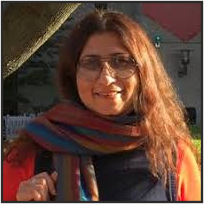
Ph.D in “Effectiveness of remedial intervention in children with Learning Disabilities”, Amity University. Masters of Arts in Psychology, Anna Malai University. Post Graduate Diploma in the Education of Physically and Neurologically Handicapped children AADI (Spastic Society of Northern India). Bachelor of Arts in Psychology, Indraprastha College, Delhi.
Expertise in conducting research to generate new knowledge that can be used to address learning and behaviour issues
Geet Oberoi, Ph.D
Orkids, New Delhi
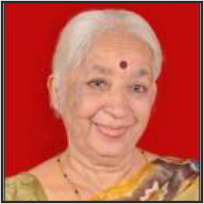
Action research on out come evaluation of child centred, play based strategies in the promotion of psycho social development of school children. Exploring the child care in the indigenous health systems and mining their insights to enrich with preferred practices into contemporary developmental psychology of childhood.
Malavika Kapur
Visiting Professor, NIAS, Bengaluru
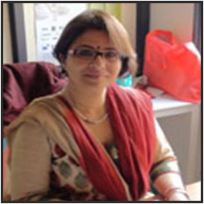
Her research covers language skills acquisition by exploring speech perception and production. Social-cultural profiles (e.g., bilingualism, multilingualism and biliteracy ) influence on neurocognitive and behavioural bases of reading in children and adults. Another area of research is in perception of music and understand the mechanisms which enable the brain to process complex auditory stimuli like music.
Nandini Chatterjee Singh, PhD
PhD in Physics from University of Pune
Scientist-VI & Professor,
National Brain Research Center, Manesar, Gurugram, Haryana
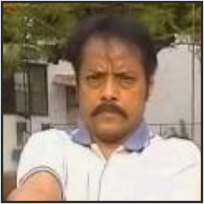
Sports medicine, Occupational Health, Spine Health ; Founder member: British Society for Heart failure; Working Group member: European Society Of Cardiology; President: Indian Association of Occupational Health (AP) & Indian Federation of Sports medicine (AP) Hyderabad Spine Clinics
Dr. Maj S Bakhtiar Choudhary (Retd)
MD (Switzerland), D.Lit (Colombo), PhD (USA)
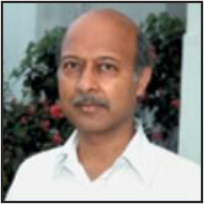
He is the founder-head of Language Technologies Research Centre, at IIIT, Hyderabad, India, the largest academic centre for computational linguistics (CL) research in this region of the world. He worked on Computational Paninian Grammar framework which is linguistically elegant and computationally efficient. It is a dependency grammar based framework, particularly well suited for morphologically rich and free word-order languages. He is also the Former director of IIITH and IITBHU, Fellow of Indian National Academy of Engineers (Awarded Oct. 2009), Sanskrit Mitra Puraskar, 2004 (by Central Sanskrit Board.) [Awards committee chaired by Hon’ble Justice Ranganath Mishra] Computers and Linguistics, by Dravidian Linguistics Association, 1993.
Prof Rajeev Sangal, Ph.D
Professor, IIIT Hyderabad
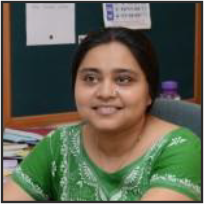
In addition to core research area of Natural language processing, she is involved in studies to understand human language acquisition. A school at IIIT campus, Sanskar is being guided by her expertise in open methods of learning/teaching.
Soma Paul, PhD in Linguistics
Research Assistant Professor, IIIT Hyderabad
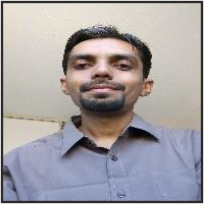
Trained as a teacher at Mirambika, Delhi he volunteered there for three years and was the program director of HP funded project ‘Education Innovation Funds for India’ (EIFI), where he worked on Integrating Technology with projects as well as in regular classroom. As an experiencial educator he has travelled around India and visited more than 30 schools. At some places he volunteered while at other places he conducted workshops for students and teachers or just lived as an observer for his own study related to curriculum, culture and pedagogy. Currently, he is part of a learning space anahad near Hyderabad, where he practices need-based Integral Education.
Vaibhav Pandya
M.Sc (Physics) from University of Mumbai
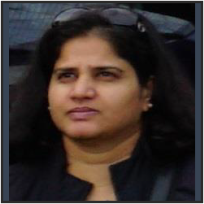
Core areas of research include neural networks of empathy, plasticity of the motor cortex post stroke, understanding human intelligence in decision making, assistive systems for clinical & nonclinical applications.
Kavita Vemuri, Ph.D
Assistant Professor, Cognitive Neuroscience, IIIT Hyderabad
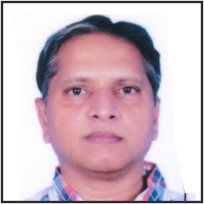
Research interests include the application of various neural network and machine learning techniques for understanding how brain encodes and decodes information, empirical experiments using behavioural and neuroimgaing methods and cognitive modelling.
Bapi Raju Surampudi, PhD
Professor, Cognitive Science Lab, IIIT Hyderabad
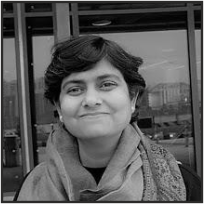
Her research investigates the role of attention, perception, stress in constructing spatial knowledge while using 360-degreee FOV and VR technologies, emotion perception in healthy and clinically diagnosed depression population, and creative thinking. She uses self-report, psychophysics, virtual reality, and psychophysiology measures to study questions like – how emerging technologies are changing the way we construct our reality.
Priyanka Srivastava, PhD
Senior Research Scientist, Cognitive Science lab, IIITH
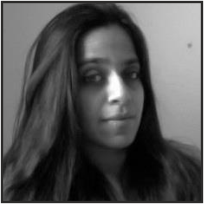
Her current focus in neuroscience is to investigate how individual differences (musical expertise, personality, and empathy) modulate brain states while listening to music. In addition, she is investigating the link between music listening habits and risk for depression.
Vinoo Alluri, PhD
Assistant Professor, Cognitive science lab, IIITH
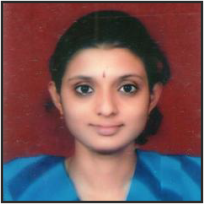
A performing Carnatic musician, she has been teaching theory of music structure to engineering students. She will share her observations of music can be taught to the uninitiated and also the benefits of it to young minds.
Saroja T K, PhD
Lecturer, IIITH
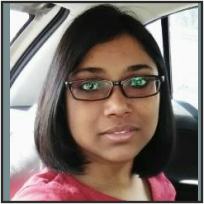
She has worked in the field of nutrition for more than last 10 years. She has explored and experienced the entire range of malnutrition- ranging from under-nutrition to over-nutrition. Experience of working with organisation such as Talwalkars (Kolkata), Child In Need Institute (Kolkata), Naandi Foundation (Hyderabad) and international organisations like Unicef, Save the Children, World Bank on multiple projects has given her opportunities to explore rural India, interacting with farmers and agricultural labours, understanding the ground scenario of food production as well as the ecosystem which in turn nourished her own knowledge on food and nutrition.
Soma Chakrabarty, PhD
Nutrition expert

Sarita Chebbi is a compulsive early riser. Devourer of all news. Kettlebell enthusiast. Nit-picker of the written word especially when it’s not her own.

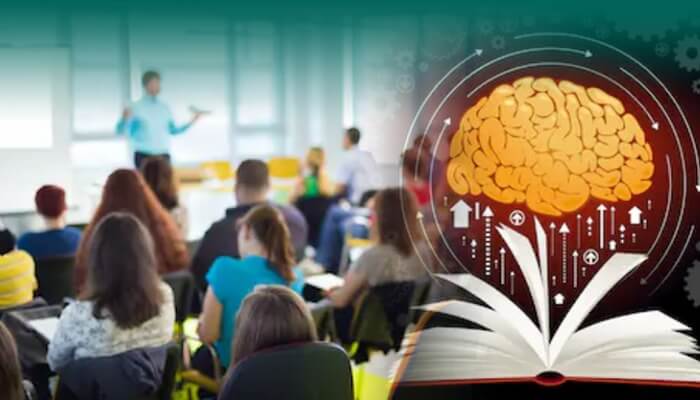
Please let me know the timings
Durga says:Workshop is on 13 and 14 December 2019. More details are at: http://ttb.iiit.ac.in/
iiit-blog says:In IIIT Hyderabad
iiit-blog says: